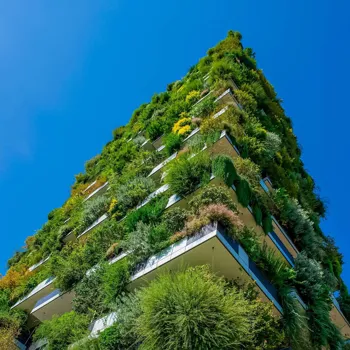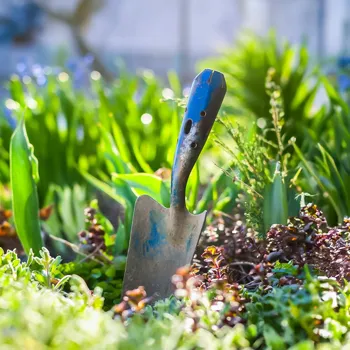Unlock the secrets to a sustainable garden in India! 10 essential tips await you. Dive in for eco-friendly wisdom
Gardening enthusiasts across India are increasingly turning towards sustainable practices,
drawn by the promise of healthier produce, a lighter environmental footprint, and a deeper connection with nature. But creating a truly sustainable garden can seem daunting at first. Fear not!
We've compiled 10 must-know tips to guide you on your journey towards an eco-friendly and bountiful garden. These tips are designed to be practical and easily adaptable to gardens of all sizes, from tiny balcony spaces to sprawling backyard plots. So, grab your gardening gloves, and let's dive in!
Embrace Native Plants: Your Local Heroes
Think of native plants as the superheroes of your garden! They are naturally adapted to the local climate and soil conditions, requiring less water, fertilizer, and pest control than non-native species. This translates to less work for you and a healthier ecosystem for your garden.
Native plants are also a vital food source and habitat for local pollinators like bees and butterflies, as well as birds. By choosing native plants, you’re not just beautifying your garden; you’re actively contributing to the biodiversity of your region.
Check with your local nurseries or agricultural experts to find out which native plants thrive in your area. You can also research local flora online. By supporting native plants, you are boosting your local environment and the health of your garden.
Native plants also save you time and money as they are low maintenance and resilient to common local problems.
Compost is Gold: Turn Waste into Treasure
Composting is like magic! It transforms kitchen scraps and garden waste into a nutrient-rich soil amendment that can significantly improve the health of your garden. Instead of throwing away vegetable peels, fruit cores, coffee grounds, and fallen leaves, toss them into a compost bin.
Over time, these materials will decompose into a dark, crumbly substance packed with essential nutrients. Adding compost to your garden soil improves its structure, water retention, and fertility. It also reduces the need for synthetic fertilizers, which can harm the environment.
There are various composting methods, from simple backyard piles to more sophisticated composting systems. Choose the method that best suits your space and lifestyle. Composting not only enriches your garden but also reduces landfill waste, making it a win-win for you and the planet.
You can even compost indoors using a vermicomposting system (worms).
Water Wisely: Every Drop Counts
Water is a precious resource, especially in India, and conserving water in your garden is crucial. Avoid overwatering, which can lead to root rot and other problems. Instead, water deeply and less frequently, allowing the soil to dry out slightly between waterings.
This encourages roots to grow deeper, making plants more drought-tolerant. Consider installing a drip irrigation system, which delivers water directly to the roots of plants, minimizing water loss through evaporation. Rainwater harvesting is another excellent way to conserve water.
Collect rainwater in barrels or tanks and use it to water your garden. Mulching also helps to retain moisture in the soil, reducing the need for frequent watering. By implementing these water-wise strategies, you can create a beautiful and thriving garden while minimizing water consumption.
Natural Pest Control: Embrace Beneficial Bugs
Say goodbye to harmful chemical pesticides! There are many natural ways to control pests in your garden without harming the environment or your health. Encourage beneficial insects, such as ladybugs and lacewings, which prey on common garden pests like aphids and caterpillars.
You can attract these beneficial insects by planting flowers that provide them with nectar and pollen. Companion planting is another effective strategy. For example, planting marigolds near tomatoes can help repel nematodes.
Neem oil is a natural insecticide that can be used to control a wide range of pests. You can also make your own pest control solutions using ingredients like garlic, chili peppers, and soap.
By embracing natural pest control methods, you can create a healthier and more balanced ecosystem in your garden.
Say No to Synthetic Fertilizers: Feed Your Soil Naturally
Synthetic fertilizers may provide a quick boost to plant growth, but they can also harm the environment and deplete the soil of essential nutrients. Opt for organic fertilizers instead, such as compost, manure, and bone meal.
These fertilizers release nutrients slowly and steadily, providing plants with a balanced diet. They also improve the soil structure and promote beneficial microbial activity. You can also use green manure crops, such as legumes, to enrich the soil with nitrogen.
Cover crops, such as buckwheat, can help to suppress weeds and improve soil health. By feeding your soil naturally, you can create a thriving ecosystem that supports healthy plant growth without the negative impacts of synthetic fertilizers. Healthy soil is the foundation of a healthy garden.
Mulch, Mulch, Mulch: The Gardener's Best Friend
Mulch is a gardener's best friend for good reason! It's a layer of organic material, such as wood chips, straw, or shredded leaves, that is spread around plants. Mulch helps to suppress weeds, retain moisture in the soil, regulate soil temperature, and prevent soil erosion.
As the mulch decomposes, it adds nutrients to the soil, further enriching it. Mulching also creates a more attractive and tidy garden. There are various types of mulch available, so choose one that suits your plants and your aesthetic preferences.
Apply a layer of mulch around your plants in the spring and again in the fall to reap the many benefits of this simple yet effective gardening technique. Mulching also reduces the amount of garden maintenance needed.
Promote Pollination: A Buzzing Garden is a Happy Garden
Pollinators, such as bees, butterflies, and birds, are essential for the success of your garden. They help to transfer pollen from one flower to another, enabling plants to produce fruits and seeds. Unfortunately, pollinator populations are declining due to habitat loss and pesticide use.
You can help to support pollinators by planting a variety of flowers that provide them with nectar and pollen throughout the growing season. Choose flowers of different colors, shapes, and sizes to attract a diversity of pollinators. Avoid using pesticides, which can harm or kill pollinators.
Provide a source of water for pollinators, such as a shallow dish filled with pebbles and water. By creating a pollinator-friendly garden, you'll not only enjoy the beauty of these creatures but also ensure the success of your harvest.
Crop Rotation: A Strategy for Healthy Soil and Plants
Crop rotation involves planting different crops in the same area in a planned sequence. This helps to prevent the buildup of soilborne diseases and pests, improve soil fertility, and reduce the need for fertilizers.
Different crops have different nutrient requirements, so rotating them can help to balance the nutrients in the soil. For example, legumes, such as beans and peas, fix nitrogen in the soil, which can benefit subsequent crops.
Avoid planting the same crop in the same area year after year, as this can deplete the soil of specific nutrients and create favorable conditions for pests and diseases.
Plan your crop rotation carefully based on the nutrient requirements of your crops and the common pests and diseases in your area.
Grow Vertically: Maximize Your Space
If you have a small garden or balcony, growing vertically is a great way to maximize your space. Climbing plants, such as beans, cucumbers, and tomatoes, can be grown on trellises, fences, or walls.

You can also use hanging baskets, vertical planters, and stacked containers to create a multi-layered garden. Growing vertically not only saves space but also adds visual interest to your garden. It also improves air circulation around plants, which can help to prevent diseases.
Choose plants that are well-suited to vertical growing and provide them with adequate support. Vertical gardening is especially useful in urban settings.
Garden with the Seasons: A Rhythm of Growth
India has diverse climate zones, so gardening with the seasons is essential for success. Understand the climate and growing conditions in your region and choose plants that are well-suited to those conditions.

Plant cool-season crops, such as spinach and lettuce, in the winter and warm-season crops, such as tomatoes and peppers, in the summer. Pay attention to the timing of planting and harvesting to ensure that your plants have the best chance of success.
Gardening with the seasons is not only more sustainable but also more rewarding, as you'll be working in harmony with nature's rhythms. This will also help reduce pests and diseases because the crops will be locally adapted. The practice ensures you are maximizing opportunities for growth.
By following these 10 tips, you can create a sustainable garden that not only nourishes the earth but also provides you with delicious, homegrown produce. Happy gardening!
AI Generated Content. Glance/InMobi shall have no liability for the content











